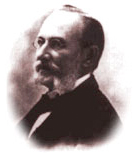An Excerpt from the Introduction to Robert Freeman Smith's book Background to Revolution
"The things that have been written about Cuba by North Americans have in many cases deeply insulted Cuban pride. The United States not only took over the Cuban Revolution in a physical sense, but in an intellectual sense as well. They labeled it the Spanish-American War, and North American historians and journalists have promulgated a version of the conflict which eliminates the Cubans almost entirely. The 1963 revision of a leading, basic text in U.S. history states: It is an exaggeration to speak of the disorder in Cuba that broke out in 1895 as a revolution. Maximo Gomez was utterly unable to maintain a government, or even to keep an army in the field.
| This is the last mention of Cubans in this discussion of the war. The author also perpetuates false historical mythology by praising Walter Reed and William C. Gorgas in their conquest of yellow fever. The Cuban who discovered the means of transmission and finally convinced the U.S. Army doctors of the validity of this theory is never mentioned. Carlos J. Finlay continues to be excluded from North American texts, just as the Surgeon General of the U.S. Army excluded him from the article which he wrote on yellow fever for the Encyclopaedia Americana (the article was reprinted without change for half a century). Perhaps the Surgeon General was vexed because, in desperation, Reed and Gorgas ignored his orders to disregard Finlay's theory. But his account is still repeated to American school children. |
 Dr. Carlos J. Finlay |
Cuban historians have written many books trying to correct he record and restore the Cuban heritage of the Revolution. Few scholars in North America read them. In failing to do so they not only perpetuate the version glorifying the U.S. but they also remain ignorant of its effect on Cuban nationalism. Few leading texts in U.S. diplomatic history cite any works by Cubans or utilize any of the research done by these scholars. The most recent book-length study of the Spanish-American War does not refer to a single Cuban source and hardly mentions the Cubans at all except in deprecatory terms. In this respect Professor Samuel Flagg Bemis deserves credit for changing the name of the war in the 1959 edition of his Short History of American Diplomacy, and acknowledging the role of Cuban historians in this change. Meanwhile, Cubans reading the works of their historians were finding out such things as the role of the Revolutionary Army in clearing landing areas so the U.S. Army could straggle ashore for days with no opposition. Is it any surprise that sensitive Cubans wondered why all the efforts of their heroes were studiously ignored in North America? Could it be that in so rewriting the story the Yankees were in effect preparing the historical justification for control, tutelage, and influence? This is exactly what many Cubans believed. Perhaps the Cubans have been too sensitive, but they reacted as a small, young nation struggling to create and maintain a sense of national identity while living in the shadow of a giant power to the North. One can imagine what the reaction in the young United States would have been if France had taken over the American Revolution, refused to let George Washington participate in the British surrender at Yorktown, set up a military government, and retained Newport, R.I. , as a naval base. Then, if French historians had ignored the Continental Army, called the struggle the Franco-British War, and emphasized only the French role, it is entirely conceivable that the American reaction would have been quite similar to Cuba's."